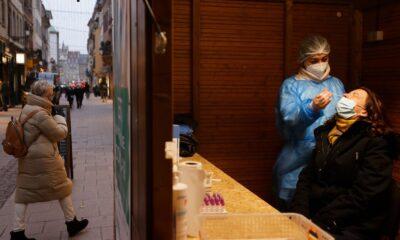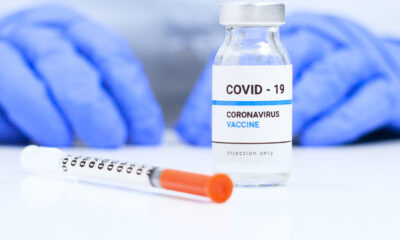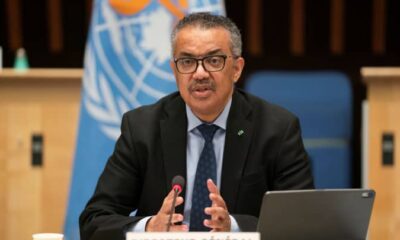Legislators from the National Assembly, State Houses of Assembly and the Federal Capital Territory (FCT) converged at the Transcorp Hilton Abuja from 23-25 May 2021 for the Fourth Legislative Health Summit.
Every year, since the first Summit was convened in July 2017 (except in 2020 because of COVID-19), Legislators have gathered to apply their statutory functions of legislation, appropriation, oversight (accountability), and representation to raise health high on the agenda of the government.
A major output of the Summit is the Legislative Health Agenda (LHA) with actionable steps and timelines for implementation at the national and state levels. The LHA details critical interventions for legislative action that will support the attainment of UHC and health security in Nigeria.
The theme of the 2021 Summit which was chaired by the President of the Senate, Senator Ahmed Lawan and represented by the Deputy Chief Whip of the Senate, Senator Sabi Aliyu, is “Universal Health Coverage and Health Security, two sides of a coin for an efficient health system”.
“This summit is coming at a time when COVID-19 has revealed the fractures in the global and indeed Nigerian health systems demonstrated by apparent disruptions in the economy and provision of essential health services”, stated Dr. Walter Kazadi Mulombo, the WHO Nigeria Country Representative (WR) at the Summit.
“The WHO within our mandate under the GPW13 and the Transformation Agenda is committed to supporting member States in the achievement of the health agenda of their choice. With the ongoing restructuring going on including here in Nigeria, stepping up political leadership as a vehicle towards accelerating UHC and health security has, therefore, been considered an appropriate strategic shift.” He added.
To conclude his remarks, Dr. Kazadi promised WHO’s support to develop appropriate accountability mechanisms to track implementation of the Legislative Health Agenda and to extend good practices to other countries.
Earlier in his remarks, Nigeria’s Vice President Prof. Yemi Osinbajo, represented by the Minister of State for Health, Senator (Dr) Olorunnimbe Mamora, reassured Nigerians of the commitment of the Government towards UHC and health security.
“The attainment of the Universal Health Coverage for all Nigerians and especially for the most vulnerable Nigerians are at the heart of the human capital development initiative of this administration. Our experience in the last year of COVID19 in Nigeria has exposed the vulnerability of our health system and the importance of preparedness, diagnosis and response mechanism. The Federal Ministry of Health is committed to the achievement of universal health coverage for all citizens through the Basic Health Care Provision Fund (BHCPF), revised to provide a much richer Basic Minimum Package of Health Services, to meet the common healthcare needs of all citizens.”
In an address of welcome, the Chairman of the Senate Committee on Health and Convener of the Legislative Network for Universal Health Coverage (LNU), Senator Ibrahim Yahaya Oloriegbe, stated that the purpose of the Summit is to review progress against the Legislative Health Agenda set at the last Summit in 2019 towards developing priorities for the year ahead for improvement of the Nigerian health system. He underscored the challenges in the system including COVID-19 and appreciated all development partners who supported the Summit.
The First Counsellor and Deputy Head of Delegation at the European Union Delegation to Nigeria and ECOWAS (EU), Mr. Alexandre Borges Gomes in his goodwill message reiterated the EU’s support and urged the Government of Nigeria to improve strategic investment for UHC and Health Security. “The EU shares the very real concern, a fear, about the impact of COVID-19 on the maintenance of essential health services. Routine immunization has suffered which does not abode well for those States in Nigeria with already extremely low rates. Health is an expensive business and Nigeria, one of the countries of the world with the worst health indicators, has also one of the lowest spending ratios. It would be essential that the sector be prioritized right at the time when appropriations are set if we are to have anything like minimally effective and accountable delivery of services”.
The 3-day event which was supported by development partners including the WHO with funding from the European Union (EU), was graced by the Vice President Prof. Yemi Osinbajo represented by the Minister of State for Health Senator (Dr) Olorunnimbe Mamora, the Speaker of the House of Representatives Rt. Hon. Femi Gbajiabiamila who was represented by the Chairman House Committee on Healthcare Services, Hon. Tanko Sununu, and the Chairman Senate Committee on PHC and Communicable Diseases Senator Chukwuka Utazi.

 News3 weeks ago
News3 weeks ago
 Business3 weeks ago
Business3 weeks ago
 Technology3 weeks ago
Technology3 weeks ago
 Investment3 weeks ago
Investment3 weeks ago
 Banking Sector3 weeks ago
Banking Sector3 weeks ago
 Banking Sector3 weeks ago
Banking Sector3 weeks ago
 Appointments3 weeks ago
Appointments3 weeks ago
 Investment3 weeks ago
Investment3 weeks ago





























